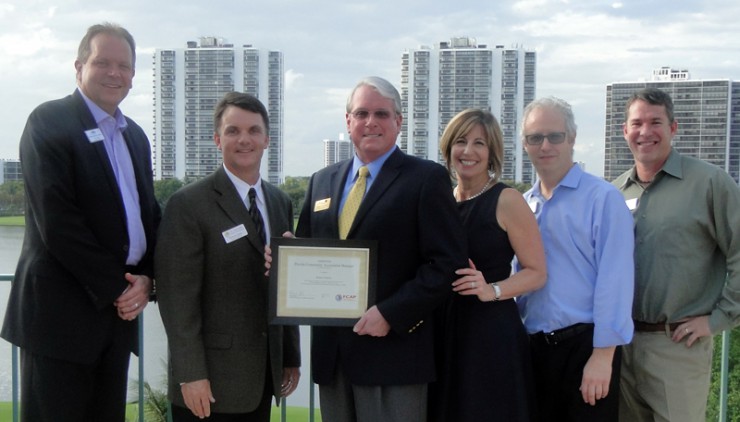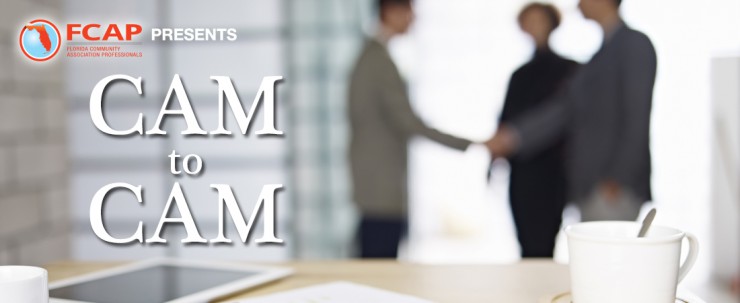In June of 2015, The Florida Supreme Court decided what a licensed community association manager can do, without being accused of practicing law without a license. The truth is—The Florida Bar tried hard to curtail what community association managers can do without a license to practice law, while the community association managers argued that most tasks required of community association managers certainly do not require three years of law school and passage of the Bar exam.
While the attorneys and managers who work with community associations may have made themselves familiar with the opinion, many Board members remain ill advised, and as a result continue to ask their manager to perform tasks that they’re not allowed to perform. In addition, they may wrongfully believe that their attorney needs to be more involved than necessary.
Here is how The Florida Supreme Court ruled:
The Court first spoke about what generally is considered the practice of law and said:
In determining whether the giving of advice and counsel and the performance of services in legal matters for compensation constitute the practice of law it is safe to follow the rule that if the giving of the advice and performance of the services affect important rights of a person under the law, and if the reasonable protection of the rights and property of those advised and served requires that the person giving such advice possess legal skill and a knowledge of the law greater than such possessed by the average citizen, then the giving of such advice and the performance of such services by one for another as a course of conduct constitutes the practice of law.
The practice of law also includes the giving of legal advice and counsel to others as to their rights and obligations under the law and the preparation of legal instruments, including contracts, by which legal rights are either obtained, secured or given away, although such matters may not then or ever be the subject of proceedings in a court.
Upholding a prior 1996 decision in all respects, The Florida Supreme Court again found the following activities when performed by a CAM to constitute the unlicensed practice of law:
- Completing the frequently asked question and answer sheet;
- Drafting a claim of lien, satisfaction of lien, and notice of commencement;
- Determining the timing, method, and form of giving notice of meetings;
- Determining the votes necessary for certain actions, which would entail interpretation of certain statutes and rules; and
- Answering a community association’s question about the application of law to a matter being considered or advising a community association that a course of action may not be authorized by law, rule, or the association’s governing documents.
On the other hand, the 1996 opinion found the following activities not to constitute the practice of law:
- Completion of the change of registered agent form and annual report form;
- Drafting certificates of assessments;
- Drafting first and second notices of date of election;
- Drafting ballots;
- Drafting written notices of annual or board meetings;
- Drafting annual meeting or board meeting agendas, and
- Drafting affidavits of mailing.
The 1996 Court opinion found the following activities to be dependent upon the specific circumstances:
- Modification of limited proxy forms promulgated by the state;
- Drafting a limited proxy form;
- Drafting documents required to exercise the community association’s right of approval or right of first refusal on the sale or lease of a parcel.
The 1996 Court opinion found the following to be ministerial and could be performed by a CAM:
- Modification of a limited proxy form to include the name of the community association;
- Phrasing a yes or a no voting question concerning either waiving reserves or waiving the complied, reviewed, or audited financial statement requirement;
- Phrasing a yes or a no voting question concerning carryover of excess membership expenses; and
- Phrasing a yes or a no voting question concerning adoption of amendments to the Articles of Incorporation, Bylaws, or condominium documents;
- The Court also found that the drafting of documents required to exercise a community association’s right of approval or first refusal to a sale or lease may require the assistance of an attorney, since there could be legal consequences to the decision.
The Court then went on to address 14 additional activities that community association managers typically perform. Here they are:
- Preparation of a Certificate of Assessments due once the delinquent account is turned over to a lawyer;
- Preparation of a Certificate of Assessments due once a foreclosure of the unit has commenced;
- Preparation of Certificate of Assessments due once a member disputes in writing to the association the amount alleged as owed;
HOLDING—preparation of each of the three documents do not constitute the practice of law.
- Drafting of amendments (and certificates of amendment that are recorded in the official records) to declaration of covenants, bylaws, and articles of incorporation when such documents are to be voted upon by the members;
Holding—the preparation of these documents constitute the unlicensed practice of law
- Determining the number of days to be provided for statutory notice
Holding—if the determination of the number of days to be provided for statutory notice requires the interpretation of statutes, administrative rules, governing documents, or rules of civil procedure, then, it would constitute the unauthorized practice of law for a CAM to engage in this activity. If the determination does not require such interpretation, then it would not be the unlicensed practice of law.
- Modification of limited proxy forms promulgated by the state;
Holding—If there is no discretion regarding the wording, and it is a yes or no question it is not the unauthorized practice of law. However, if the question requires discretion in the phrasing or involves the interpretation of statute or legal documents, the CAM may not modify the form.
- Preparation of documents concerning the right of the association to approve new prospective owners;
Holding—if the preparation requires the exercise of discretion or the interpretation of statutes or legal documents, a CAM may not prepare the documents. For example, the association documents may contain provisions regarding the right of first refusal. Preparing a document regarding the approval of new owners may require an interpretation of this provision. An attorney should be consulted to ensure that the language comports with the association documents. On the other hand, the association documents may contain a provision regarding the size of pets an owner may have. Drafting a document regarding this would be ministerial in nature as an interpretation of the documents is generally not required.
- Determination of affirmative votes needed to pass a proposition or amendment to the recorded documents;
- Determination of owners’ votes needed to establish a quorum;
Holding—if these determinations require the interpretation and application of statutes and the community association’s governing documents, then this would constitute the unauthorized practice of law. If no interpretation is required—they would not.
- Drafting of pre-arbitration demand letters;
Holding—this task is ministerial in nature and is not considered the unauthorized practice of law.
- Preparation of construction lien documents (e.g., notice of commencement and lien waivers, etc.);
Holding—This is a very complicated and technical area of the law—Preparation of these documents would constitute the unlicensed practice of law.
- Preparation, review, drafting, and/or substantial involvement in the preparation/execution of contracts, including construction contracts, management contracts, cable television contracts, etc;
Holding—Preparation of these documents constitute the unlicensed practice of law.
- Identifying, through review of title instruments, the owners to receive pre-lien letters;
Holding—if the CAM is only searching the public records to identify who has owned the property over the years, then such review is ministerial in nature and not the unauthorized practice of law. In other words, if the CAM is merely making a list of all record owners—no violation. If however the CAM uses the list and then makes the legal determination of who needs to receive the pre-lien letter, this would constitute the unlicensed practice of law because it involves an analysis as to who must receive the letters.
- Any activity that requires statutory or case law analysis to reach a legal conclusion.
Holding—It would constitute the unlicensed practice of law for a CAM to engage in activity requiring statutory or case law analysis to reach a legal conclusion.
Regardless of what you think of the decision—CAMs are well advised to abide by it or face the risk of being charged with the unauthorized practice of law and face a host of possible penalties. Not only should CAMs be careful, but Board members need to understand the decision of the Florida Supreme Court just as much as the managers do—and make sure not to ask your community association manager to take the role of the association’s attorney. By doing so, you place the manager in the difficult position of saying “NO” in order to comply with the law, while simultaneously looking like they refused to perform a task asked for by their employer.
Board members, managers, and attorneys should work together to familiarize themselves with the above opinion. Board members should be careful about asking managers to do tasks that could place their manager in jeopardy of being accused of practicing law without a license. Managers should know their limitations and that their license is on the line if they go too far, cross the line and practice law, even if their intentions were simply to be helpful and save the association money on attorney’s fees. Attorneys should also know that their help is not needed for everything, but instead primarily for interpreting the governing documents, the Florida Statutes and for preparation of documents that wind up getting recorded in the public records. The bottom line is that effective communication among everyone ensures proper distribution of required tasks and minimizes the risks that the above opinion is not complied with.
 Eric M. Glazer is a native of Brooklyn, New York Mr. Glazer obtained his B.A. in Political Science at New York University. While at N.Y.U., Mr. Glazer was employed in the Kings County District Attorneys Office. Mr. Glazer obtained his Juris Doctorate at the University of Miami School of Law. In 1994 he established his own law office in Aventura and has recently relocated to Hollywood. Mr. Glazer has represented hundreds of community associations in the South Florida area. More info can be found at his website.
Eric M. Glazer is a native of Brooklyn, New York Mr. Glazer obtained his B.A. in Political Science at New York University. While at N.Y.U., Mr. Glazer was employed in the Kings County District Attorneys Office. Mr. Glazer obtained his Juris Doctorate at the University of Miami School of Law. In 1994 he established his own law office in Aventura and has recently relocated to Hollywood. Mr. Glazer has represented hundreds of community associations in the South Florida area. More info can be found at his website.
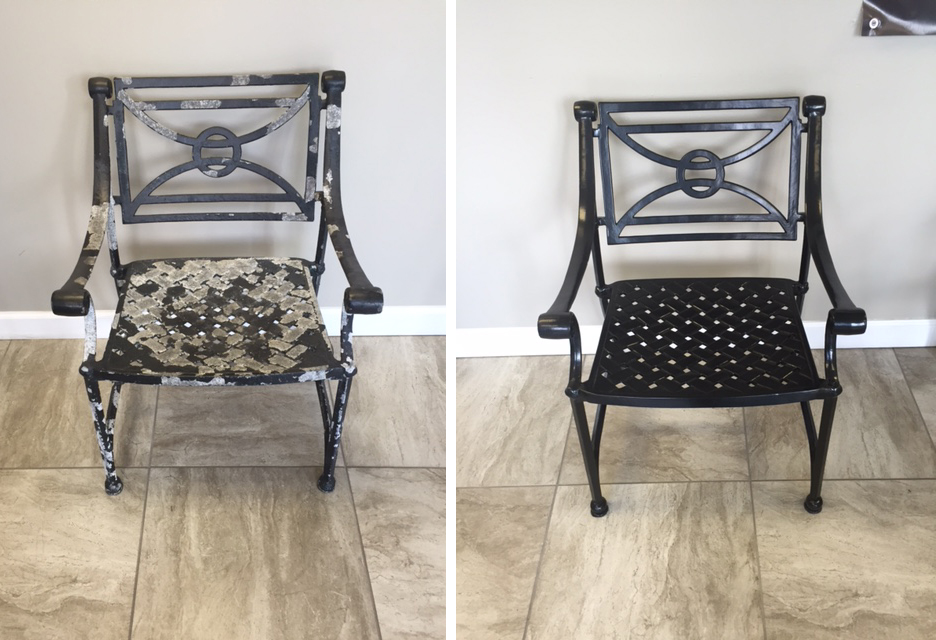 Powder coating is an advanced method of applying a decorative and protective finish to a wide range of materials and products that are used by various industries and consumers. The powder used for the process is a mixture of finely ground particles of pigment (color) and resin (protective finish), which is sprayed onto the surface to be coated. The materials to be coated are electronically grounded to attract the charged particles that adhere to the surface. After being heated in a curing oven, the powder fuses into a durable and protective coating. The result is a uniform, high quality, and attractive finish. Powder coating is the fastest growing technology in North America, providing numerous industrial applications in all form of materials and products. Powder coating is extremely beneficial when applied to outdoor furniture because of its excellent exterior performance.
Powder coating is an advanced method of applying a decorative and protective finish to a wide range of materials and products that are used by various industries and consumers. The powder used for the process is a mixture of finely ground particles of pigment (color) and resin (protective finish), which is sprayed onto the surface to be coated. The materials to be coated are electronically grounded to attract the charged particles that adhere to the surface. After being heated in a curing oven, the powder fuses into a durable and protective coating. The result is a uniform, high quality, and attractive finish. Powder coating is the fastest growing technology in North America, providing numerous industrial applications in all form of materials and products. Powder coating is extremely beneficial when applied to outdoor furniture because of its excellent exterior performance. by Tammy Leeman
by Tammy Leeman


 Eric M. Glazer is a native of Brooklyn, New York Mr. Glazer obtained his B.A. in Political Science at New York University. While at N.Y.U., Mr. Glazer was employed in the Kings County District Attorneys Office. Mr. Glazer obtained his Juris Doctorate at the University of Miami School of Law. In 1994 he established his own law office in Aventura and has recently relocated to Hollywood. Mr. Glazer has represented hundreds of community associations in the South Florida area. More info can be found at his
Eric M. Glazer is a native of Brooklyn, New York Mr. Glazer obtained his B.A. in Political Science at New York University. While at N.Y.U., Mr. Glazer was employed in the Kings County District Attorneys Office. Mr. Glazer obtained his Juris Doctorate at the University of Miami School of Law. In 1994 he established his own law office in Aventura and has recently relocated to Hollywood. Mr. Glazer has represented hundreds of community associations in the South Florida area. More info can be found at his 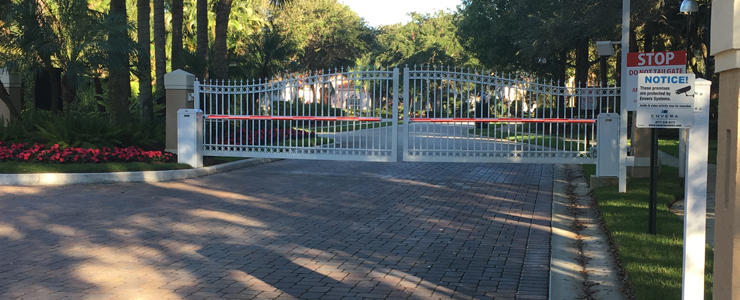
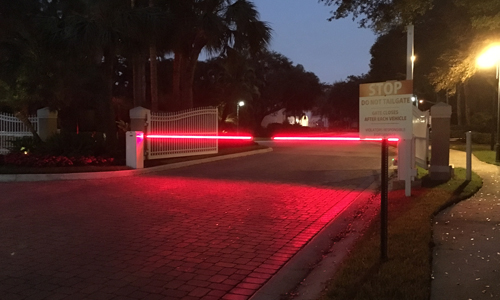 To try and solve the initial problem, it is important that a community has the appropriate barrier arms or gates installed. For instance, if the entrance is rather dark at night, consider LED barrier arms. Envera Systems installs these arms that are red when closed and green while opening. The arms illuminate the gated entry and make drivers more aware of it.
To try and solve the initial problem, it is important that a community has the appropriate barrier arms or gates installed. For instance, if the entrance is rather dark at night, consider LED barrier arms. Envera Systems installs these arms that are red when closed and green while opening. The arms illuminate the gated entry and make drivers more aware of it. Brie Peterson is the Business Development Consultant for Envera Systems. She works closely with the sales and marketing departments to provide best-in-class service to the communities that Envera works with. Envera Systems specializes in security technology systems with remote guards to replace of enhance guards at communities. Contact info: (855) 380-1274 or
Brie Peterson is the Business Development Consultant for Envera Systems. She works closely with the sales and marketing departments to provide best-in-class service to the communities that Envera works with. Envera Systems specializes in security technology systems with remote guards to replace of enhance guards at communities. Contact info: (855) 380-1274 or 
 Asphalt Restoration Technology Systems, Inc. (AR Tech) has been established in Florida since 1993. Connie Lorenz is President of AR Tech and has been with the company since 1999. Her leadership, skills and classes have taught thousands of consumers about proper asphalt maintenance and has helped save them thousands of dollars, and she has become an advocate in the industry focusing on protecting homeowners, property managers, and owners from the downfalls of questionable contractors and improper techniques. For more information, visit
Asphalt Restoration Technology Systems, Inc. (AR Tech) has been established in Florida since 1993. Connie Lorenz is President of AR Tech and has been with the company since 1999. Her leadership, skills and classes have taught thousands of consumers about proper asphalt maintenance and has helped save them thousands of dollars, and she has become an advocate in the industry focusing on protecting homeowners, property managers, and owners from the downfalls of questionable contractors and improper techniques. For more information, visit 
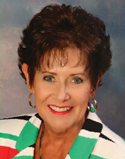 Betsy Barbieux, CAM, CFCAM, guides managers, board members, and service providers in handling daily operations of their communities while at the same time dealing with different communication styles, difficult personalities, and conflict. Effective communication and efficient management are her goals. For more than 15 years, Barbieux has educated thousands of managers, directors, and service providers. She is your trainer for life! Barbieux is the author of Boardmanship, a columnist in the Florida Community Association Journal, and a member of the Regulatory Council for Community Association Managers. For more information, contact Betsy@FloridaCAMSchools.com, (352) 326-8365, or
Betsy Barbieux, CAM, CFCAM, guides managers, board members, and service providers in handling daily operations of their communities while at the same time dealing with different communication styles, difficult personalities, and conflict. Effective communication and efficient management are her goals. For more than 15 years, Barbieux has educated thousands of managers, directors, and service providers. She is your trainer for life! Barbieux is the author of Boardmanship, a columnist in the Florida Community Association Journal, and a member of the Regulatory Council for Community Association Managers. For more information, contact Betsy@FloridaCAMSchools.com, (352) 326-8365, or 


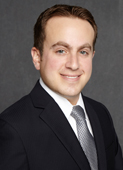 Jacob Epstein is an associate with the Miami-based law firm of Haber Slade, P.A. He concentrates his practice areas on business litigation, condominium and community association law, construction law, and real estate litigation. He can be reached at
Jacob Epstein is an associate with the Miami-based law firm of Haber Slade, P.A. He concentrates his practice areas on business litigation, condominium and community association law, construction law, and real estate litigation. He can be reached at  David T. Podein is a senior associate at Haber Slade. He concentrates his practice in the areas of complex commercial and business litigation, real estate leasing and construction, contract negotiations, real estate development disputes, condominium and community association law and bankruptcy litigation. He can be reached at
David T. Podein is a senior associate at Haber Slade. He concentrates his practice in the areas of complex commercial and business litigation, real estate leasing and construction, contract negotiations, real estate development disputes, condominium and community association law and bankruptcy litigation. He can be reached at 